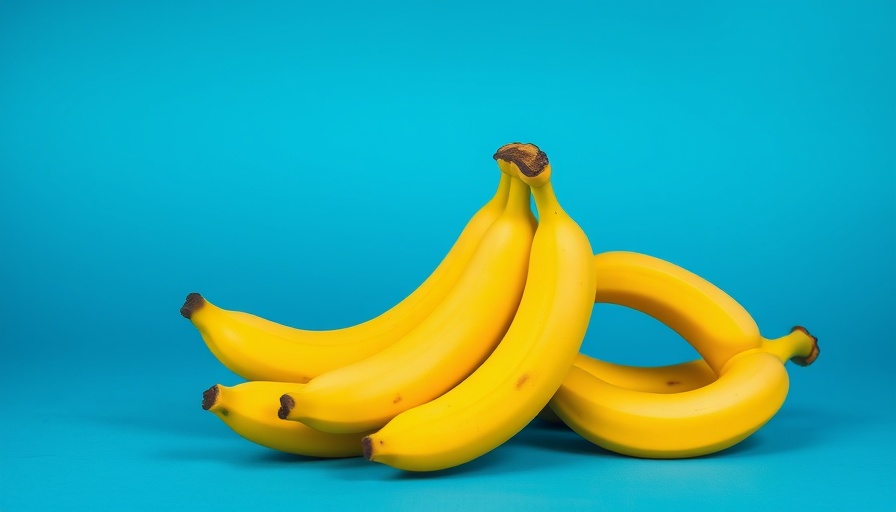
Why Bananas are a Nutritional Powerhouse
When exploring the world of fruits, bananas stand out for their unique combination of nutrients. These delightful fruits are not just a tasty snack; they offer a host of health benefits. Rich in potassium, a crucial mineral for heart health and muscle function, bananas can help maintain blood pressure levels. Additionally, their high vitamin C content supports the immune system, while the dietary fibre aids digestion.
Understanding Caloric Content in Bananas
A medium banana, typically measuring between 7-8 inches, contains roughly 105 calories. For those keeping a diligent count, smaller bananas can range from 70-90 calories, while larger variants can go up to 135 calories. Thus, incorporating one medium banana into your diet aligns well with maintaining a healthy calorie intake.
Bananas and Weight Loss: The Great Debate
One common question surrounding bananas is their role in weight loss. The reality is, bananas can indeed be part of a weight management strategy. Since weight loss essentially revolves around maintaining a calorie deficit, the low-calorie count of bananas makes them an excellent choice for satisfying sweet cravings without guilt. Notably, their high fibre content helps you feel fuller longer, which could assist in controlling overall calorie intake.
The Carbohydrate Conundrum: Are Bananas Bad Carbs?
A significant aspect of bananas is their carbohydrate profile. With around 93% of the banana's composition being carbohydrates, questions about whether they qualify as ‘good’ or ‘bad’ carbs frequently arise. While bananas contain natural sugars, the fibre present helps moderate how quickly these sugars enter the bloodstream. This is where understanding their ripeness can further illuminate their health benefits, as green bananas have more resistant starch while ripe ones are sweeter and lower in resistant starch.
Do Brown Bananas Contain More Calories?
A curious inquiry often made about bananas is whether brown bananas pack more calories. Scientifically, while the colour of the banana changes as it ripens (increased sweetness due to sugar conversion), the calorie count remains steady. Thus, a brown banana doesn't actually contain more calories; it merely signals a change in sugar composition and flavour profile.
Can You Eat Bananas Every Day?
For most people, eating a banana daily is not only safe but beneficial. However, like all foods, moderation is key. Daily consumption of bananas can supply consistent energy levels and help meet daily potassium needs. Additionally, the enzyme bromelain found in pineapples and the tryptophan in bananas can enhance mood and mood regulation, making the banana a truly versatile fruit.
Digestion: How Long Does It Take for a Banana to Digest?
The digestive time for bananas can vary among individuals, yet many report that it takes about 30 minutes to 1 hour for bananas to digest. Their soft texture and natural sugars, primarily glucose, enable fairly rapid digestion, making them an ideal post-workout snack.
Conclusion: Embrace the Banana as Part of Your Diet
Whether you're looking for a healthy snack option or simply curious about calorie intake, bananas offer a wealth of nutritional benefits. They are an excellent choice for anyone interested in maintaining a balanced diet and healthy lifestyle. As you incorporate bananas into your meals, remember their versatility and the myriad of ways they can contribute to your overall wellness. Start enjoying the myriad benefits of bananas today!
 Add Row
Add Row 

 Add Element
Add Element 


 Add Row
Add Row 
 Add
Add 
Write A Comment